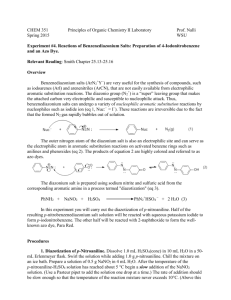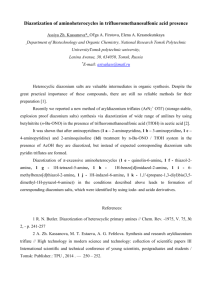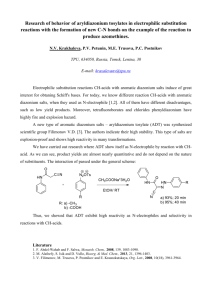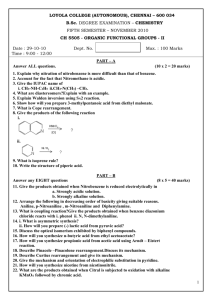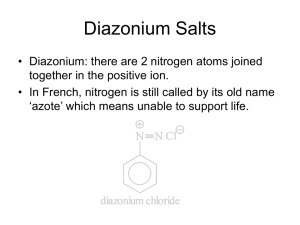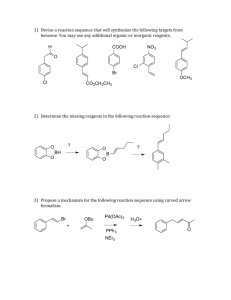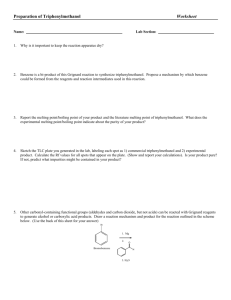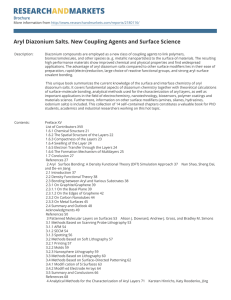Diazonium Salts: Structure, Preparation & Reactions
advertisement
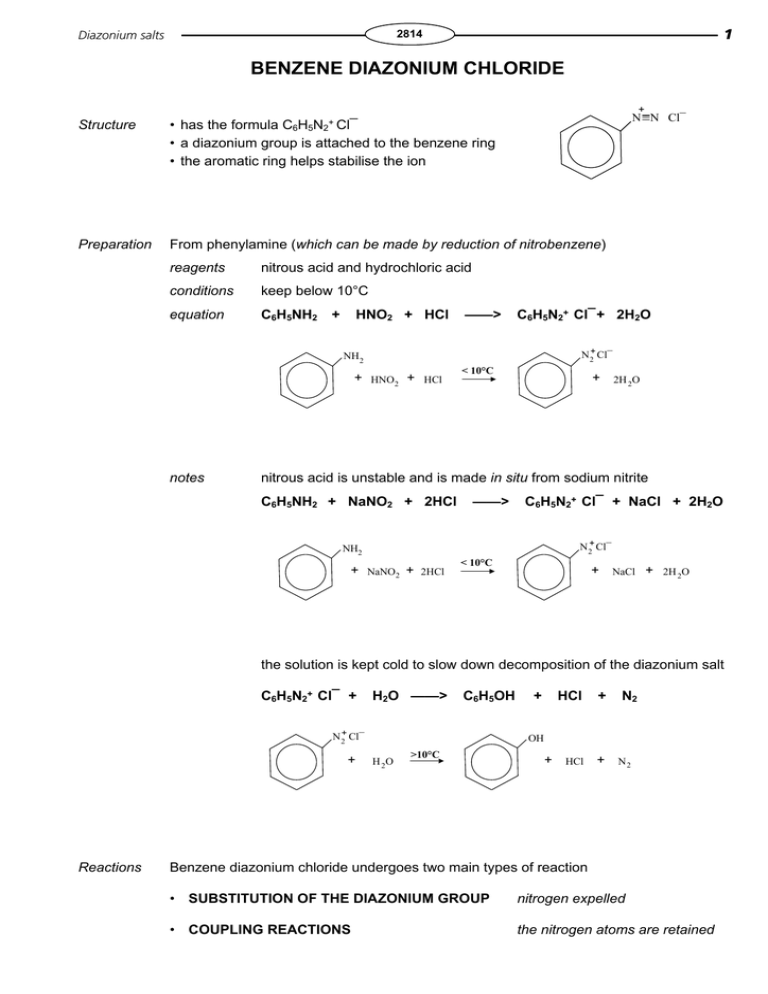
Diazonium salts 1 2814 BENZENE DIAZONIUM CHLORIDE + N N Cl¯ C6H5N2+ Cl¯ Structure • has the formula • a diazonium group is attached to the benzene ring • the aromatic ring helps stabilise the ion Preparation From phenylamine (which can be made by reduction of nitrobenzene) reagents nitrous acid and hydrochloric acid conditions keep below 10°C equation C6H5NH2 + HNO2 + HCl ——> C6H5N2+ Cl¯ + 2H2O N 2+ Cl¯ NH 2 + notes HNO 2 + < 10°C + HCl 2H 2O nitrous acid is unstable and is made in situ from sodium nitrite C6H5NH2 + NaNO2 + 2HCl ——> C6H5N2+ Cl¯ + NaCl + 2H2O N 2+ Cl¯ NH2 + NaNO2 + < 10°C + 2HCl NaCl + 2H 2O the solution is kept cold to slow down decomposition of the diazonium salt C6H5N2+ Cl¯ + H2O ——> C6H5OH N 2+ Cl¯ + Reactions + HCl + HCl + N2 OH H 2O >10°C + N2 Benzene diazonium chloride undergoes two main types of reaction • SUBSTITUTION OF THE DIAZONIUM GROUP nitrogen expelled • COUPLING REACTIONS the nitrogen atoms are retained 2 Diazonium salts 2814 SUBSTITUTION OH reagents water (hydrolysis) conditions warm above 10°C equation N 2+ Cl¯ + I OH H 2O >10°C + + HCl N2 use • the only reasonably simple way to substitute OH • phenol is an antiseptic and is used to make polymers reagents potassium iodide solution conditions warm equation C6H5N2+ Cl¯ + reagents phenol and sodium hydroxide conditions alkaline solution below 10°C KI ——> C6H5I + KCl + N2 COUPLING Phenols equation C6H5N2+ Cl¯ + C6H5OH + NaOH ——> C6H5-N=N-C6H4OH + NaCl + H2O N 2+ Cl¯ + OH + NaOH N=N OH + (4-hydroxyphenol)azobenzene YELLOW use making azo dyes the Q.1 -N=N- is the AZO functional group Outline a scheme, listing reagents and conditions, for the synthesis of 1,3-diiodobenzene. (n.b. iodine directs to the 2,4,and 6 positions) NaCl + H2O
